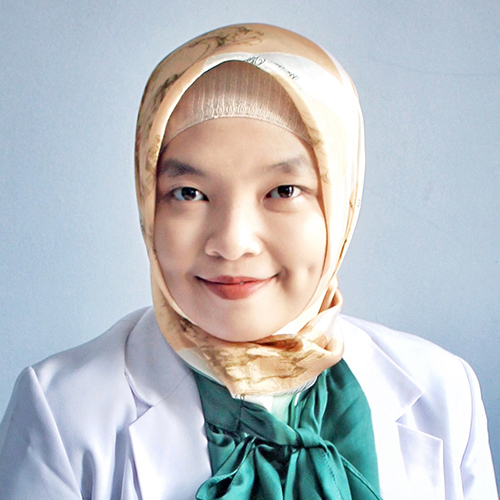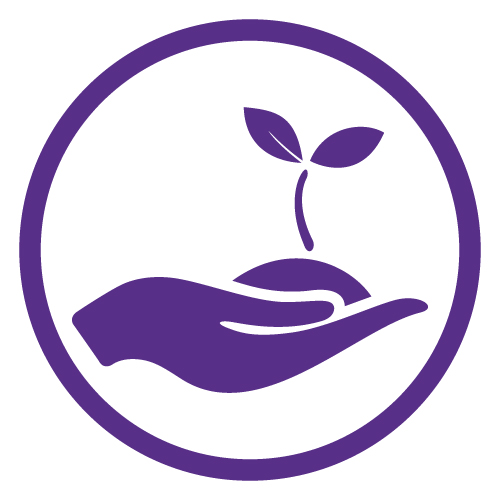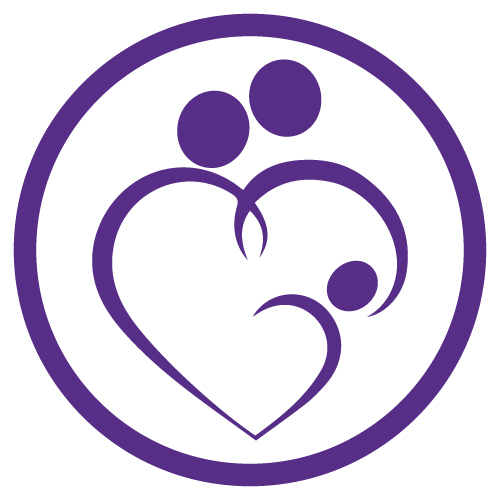 Lactation & Breastfeeding Online Course(s) & Continuing Education
Lactation & Breastfeeding Online Course(s) & Continuing Education
Access the latest clinical skills and research for Lactation & Breastfeeding for professional training. These Lactation & Breastfeeding online courses provide practice-changing skills and valuable perspectives from leading global experts. This Lactation & Breastfeeding education has been accredited for a variety of CEUs / CERPs and can be accessed on-demand, at your own pace.
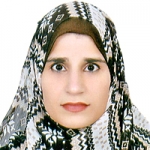
Phenylketonuria and Breastfeeding: Facts, Challenges and Reality

Doctor Asma'a Kurdi , Syrian family physician MRCGP member certified since October 2013, was the first lactation consultant doctor in Ajman certified on October 2008 ,recertified October 2013. worked as a GP in UAE , Ajman PHC since 02/2006 till 08/ 2016, with big efforts to enhance breastfeeding practice among colleagues and patients, was an active member in the breastfeeding support group ,she presented many lectures in the basic 20 hours breastfeeding training courses for health workers in Ajman .a mother of 4 children , 3 of them are PKU , with her knowledge and faith in breastfeeding she managed to breastfed them for more than 2 years and kept them healthy and normal children. She had special interest in PKU researches and but huge efforts to initiate a PKU family association in UAE . an active member in Arabic PKU mothers what's up support group ,and low protein recipes instagram page .
Breast feeding can be challenging in some special situations, phenylketonuria is one of these conditions that requires a lot of knowledge and support.
PKU is an inherited metabolic disorder that needs a special protein free diet to be followed lifelong, to grow normally, to avoid the irreversible and severe intellectual impairment and developmental abnormality.
Years ago PKU was an absolute contraindication for breastfeeding, but with more research on the disease and the breast milk components, it is now strongly suggested to breastfeed a PKU baby along with his or her special phenylalanine free formula under close supervision from a dietitian and experienced breastfeeding supportive pediatrician.
It is a difficult but achievable task, a prime example is my 3 PKU children who I managed to breastfeed for almost 2 years. Along with their PKU formula and special low protein diets they are enjoying healthy, normal mental and physical development.

View Details / Enroll
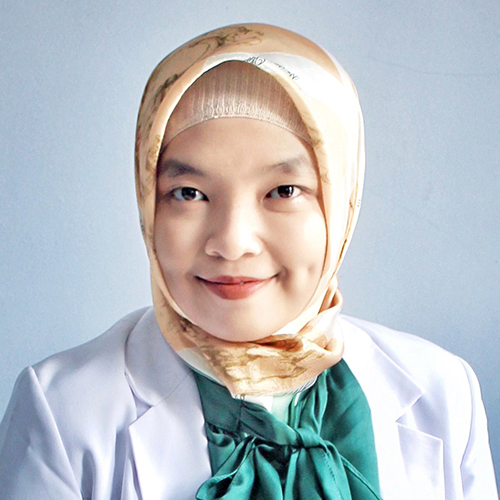

Dr. Dyah Febriyanti is a medical doctor, an IBCLC, a breastfeeding counselor, and a mother living in Jakarta, Indonesia. She has been working in hospitals since she graduated in 2012. She was facing many struggles to succeed breastfeeding her daughter for two years. She has been an IBCLC since 2017. She works with breastfeeding dyads in a team, called Praborini lactation team, consisting of all lady doctors in outpatient and inpatient care units. Concerning breastfeeding and nutrition in early life, she has published a semi-cookbook about complementary foods for breastfed babies and cooking videos to educate and help mothers feed their babies. She also has been working on scientific writing. She is a member of the Academy of Breastfeeding Medicine, International Lactation Consultant Association, and a trainer of the Indonesian Society of Perinatology.
Topic: Pitfalls in Infant Feeding Practices After Starting Solids - [View Abstract]
Breastfeeding for the first two years has physical and psychological benefits. The baby should be well-fed through exclusive human milk for the first 6 months, then given complementary feeding (or 'start solids') while continuing to breastfeed until weaning after two years. Inadequate complementary feeding may lead to nutritional as well as developmental problems. Due to a lot of misinformation many parents are unaware of current recommendations on starting solids, and it is often a time when poor understanding of the baby’s nutritional needs leads to unnecessary concern about intake of solids and subsequent weaning. Education is crucial during this period, and it is important for health care providers to be up to date on the latest best practice guidelines and skilled at counselling parents to avoid unnecessary weaning and nutritional deficits.

Popular Diet Trends: Impact and Safety During Lactation

Meghan McMillin holds a Master’s Degree in Human Nutrition from the University of Illinois at Chicago. She has been a Registered Dietitian Nutritionist (RDN) since 2013 and became an International Board Certified Lactation Consultant (IBCLC) in 2019.
Meghan spent 5 years working clinically in the NICU, pediatric floor and women’s units of a local hospital. In 2019, Meghan started her own private practice and consulting company, Mama & Sweet Pea Nutrition, with a focus on postpartum and infant care. The mama to two young kids with food allergies, helping other families manage food allergies, whether it’s while breastfeeding, during the introduction of solids, or later in childhood, is her passion.
Meghan is a member of the International Lactation Consultant Association and the United States Lactation Consultant Association. She enjoys sharing her knowledge through social media and public speaking. Meghan is the coauthor of the eBook What To Eat When Your Baby Can’t Tolerate Milk, Soy, or Egg Protein; Nutrition guidance for avoiding milk, soy, and/or eggs while lactating.
Meghan has presented both nationally and internationally including for GOLD learning, the National WIC Association and the Academy of Nutrition and Dietetics. In 2020, Meghan was awarded the Emerging Professional in Women's Health Award from the Women's Health Dietetic Practice Group of the Academy of Nutrition and Dietetics.
Topic: Popular Diet Trends: Impact and Safety During Lactation - [View Abstract]
Diet culture is pervasive and it seems everyday brings about a new popular trend or style in how, when, or what to eat. The postpartum period often brings about an incredible amount of pressure to lose weight or “bounce back” to pre-pregnancy body shape. It’s no wonder many turn to popular diet trends with the promises of quick weight loss. However, with a lack of research in the lactating population, there remains concern regarding both the effect these diets may have on milk supply and their safety. This presentation will provide lactation professionals with the information they need to have informative discussions with their clients about popular diet trends.

View Details / Enroll


Catherine Watson Genna BS, IBCLC is an International Board Certified Lactation Consultant in private practice in New York City. Certified in 1992, Catherine is particularly interested in helping moms and babies breastfeed when they have medical challenges and is an active clinical mentor. She speaks to healthcare professionals around the world on assisting breastfeeding babies with anatomical, genetic or neurological problems. Her presentations and her writing are enriched by her clinical photographs and videos. Catherine collaborates with Columbia University and Tel Aviv University Departments of Biomedical Engineering on research projects investigating the biomechanics of the lactating nipple and various aspects of sucking and swallowing in breastfeeding infants. She is the author of Selecting and Using Breastfeeding Tools: Improving Care and Outcomes (Praeclarus Press 2009) and Supporting Sucking Skills in Breastfeeding Infants (Jones and Bartlett Learning 2008, 2013, 2017) as well as professional journal articles and chapters in the Core Curriculum for Lactation Consultant Practice and Breastfeeding and Human Lactation. Catherine served as Associate Editor of the United States Lactation Consultant Association’s official journal Clinical Lactation for its first seven years.
Topic: Breastfeeding Strategies for Tongue-tied Infants - [View Abstract]
Topic: Critical Assessment of Apparent Tongue-Tie - [View Abstract]
Topic: Introduction to Cervical Auscultation - [View Abstract]
Topic: Lactation Support for Infant Biomedical Challenges - [View Abstract]
Topic: Organization of tongue movements before and after frenotomy for posterior tongue-tie: an Ultrasound analysis - [View Abstract]
Topic: Positioning and Latch for Breastfeeding - [View Abstract]
Topic: Ultrasound Analysis of Sucking: Tongue-Tie and Confounders - [View Abstract]
Topic: Using Breastfeeding Supplementers - [View Abstract]
The comfort and effectiveness of breastfeeding depend largely on how deeply the baby is attached to the breast and how stable the body positions of mother and baby are. This presentation reviews infant requirements and capabilities for breastfeeding and best practices to facilitate optimal latch.


Diana West is an IBCLC in private practice. She is the co-author of “Sweet Sleep: Naptime and Nighttime Strategies for the Breastfeeding Family,” the 8th edition of La Leche League International’s “The Womanly Art of Breastfeeding,” “The Breastfeeding Mother’s Guide to Making More Milk,” the clinical monograph “Breastfeeding After Breast and Nipple Procedures,” and ILCA’s popular “Clinician’s Breastfeeding Triage Tool.” She is the author of the “Defining Your Own Success: Breastfeeding After Breast Reduction Surgery.” She is on the Editorial Review Board for the “Journal of Clinical Lactation,” a La Leche League Leader and the Director of Media Relations for La Leche League International. She has a bachelor’s degree in psychology and is the administrator of the popular BFAR.org, LowMilkSupply.org, and LactSpeak.com websites. She lives with her three sons and one husband in the picturesque mountains of western New Jersey in the United States.
Topic: Mothers Speak Out: Top Five Traits of a Great Lactation Consultant - [View Abstract]
Topic: Mothers Speak Out: Top Five Traits of a Great Lactation Consultant - [View Abstract]
Topic: Postpartum Nipple Pain: Causes, Treatments, and Empathy - [View Abstract]
Topic: Sleep Training: History, Research, and Outcomes - [View Abstract]
Topic: Sweet Sleep: Bedsharing for Breastfeeding Mothers and Babies - [View Abstract]
In a vivid (and sometimes graphic!) presentation of photos contributed by lactation colleagues around the world, a wide variety of nipple pain causes, treatments, and counseling strategies are explored and discussed.
View Details / Enroll

Preventing the Plunge: Why the First 2 Weeks are Crucial for Breastfeeding Duration.

Cindy Leclerc and Jana Stockham are Registered Nurses and IBCLCs with over 20 years experience helping families get started with breastfeeding. In addition to hands on care, Cindy and Jana use technology to support families through their website (cindyandjana.com), online prenatal breastfeeding classes (simplybreastfeeding.ca) and iPhone app, NuuNest. Cindy is a strong believer in mother-to-mother support, helping to facilitate breastfeeding and postpartum depression support groups. She is intrigued by all things online and actively uses social media to promote breastfeeding. Jana has been trained as a Baby Friendly assessor and helped to coordinate the first Baby Friendly designation in Saskatchewan. She has a passion to help families with new babies and facilitates a group for breastfeeding moms.
Topic: Meeting your breastfeeding goals - [View Abstract]
Topic: Preventing the Plunge: Why the First 2 Weeks are Crucial for Breastfeeding Duration. - [View Abstract]
The majority of women begin breastfeeding at birth. Within the first 6 weeks, however, breastfeeding rates fall dramatically. To help women hang in with breastfeeding beyond the first weeks, we must first understand why they struggle. Learn what the research is saying and what you can do in your practice to help women meet their breastfeeding goals. IBCLC’s who specialize in the early weeks of breastfeeding will share case examples based on over 20 years of working with breastfeeding families.

View Details / Enroll
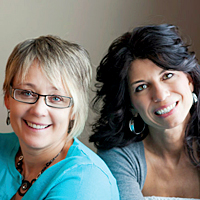
View Details / Enroll
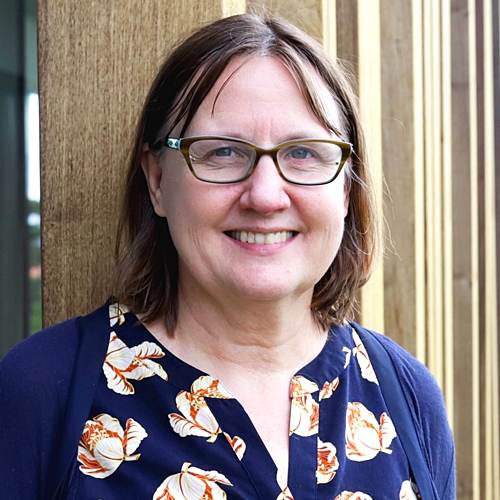
Promoting Self-Management of Breast and Nipple Pain for Women During Breastfeeding

Ruth Lucas, PhD, RNC, CLS, received her Bachelor of Science in Nursing from George Mason University (1986) and her Doctor of Philosophy of Science (2011) from the University of Illinois at Chicago. Based on 20 years of supporting women and infants to initiate breastfeeding, her research focuses on the biobehavioral mechanisms of breastfeeding, such as breast and nipple pain. Dr. Lucas and her team conducted a pilot randomized control trial (RCT) as part of the Center for Accelerating Precision Pain Self- Management (CAPPS-M) (P20NR016605). The pilot RCT tested the feasibility, acceptability, and efficacy of a breastfeeding self-management (BSM) intervention for breast and nipple pain during breastfeeding and found the BSM intervention significantly reduced breast and nipple pain and is associated with pain sensitivity polymorphisms. Her published work describes management of pain during breastfeeding, a clinical indictor of infant breastfeeding behaviors, and a biomedical device to measure breastfeeding in real time.
Topic: Promoting Self-Management of Breast and Nipple Pain for Women During Breastfeeding - [View Abstract]
Despite 90% of women experiencing breast and nipple pain during breastfeeding, mothers rarely receive adequate knowledge and skills for breastfeeding pain self-management and cease breastfeeding. Our randomized control trial (RCT) pilot study tested the feasibility, acceptability, and efficacy of a breastfeeding self-management intervention (BSM) on breast and nipple pain and breastfeeding outcomes. Sixty women were recruited after delivery and completed survey measures of pain and breastfeeding outcomes, pain sensitivity testing and a biological sample to assess genetic risk for pain at baseline. Both groups completed pain and breastfeeding outcomes surveys via texting links using REDCap 7.4. Women in the intervention group received biweekly nurse-lead texting and cloud-based educational modules addressing breast and nipple pain and breastfeeding challenges. The BSM intervention was acceptable and sustainable for 94% of the women who continued to breastfed to 6 weeks. Acute breast and nipple pain at 1 and 2 weeks were significantly reduced and was associated with pain sensitivity polymorphisms, suggesting a genetic risk profile of pain-associated breastfeeding cessation.
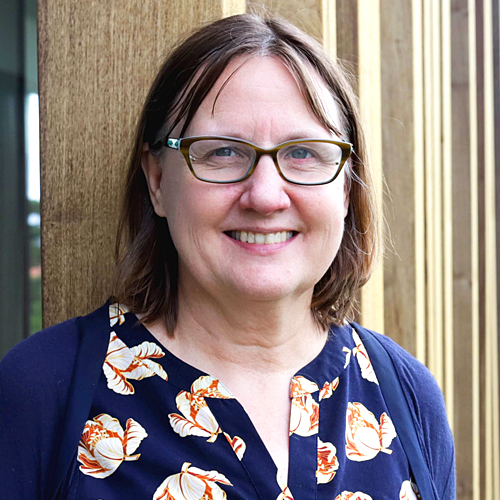
View Details / Enroll
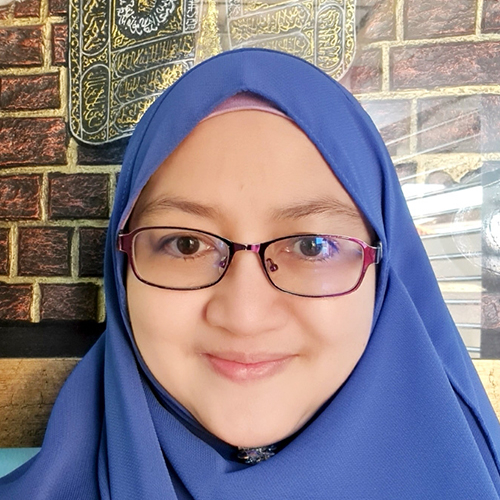
Protocol for Successful Induced Lactation and the Importance of Mahram for Muslim Families

Dr. Anisa has been working as a Consultant Pediatrician for 11 years & an IBCLC for 12 years. Dr. Anisa has a strong belief that breastfeeding saves lives of infants & young children. In order to ensure improvement of the practice of exclusive breastfeeding rate in Malaysia, she established an ambulatory care center with breastfeeding consultation services for the residents in Johor (state) & founded a networking platform for home visit counselling session by trained lactation counsellors that is BCNP (Breastfeeding Counselors Networking Program) since January 2016. Apart from above mentioned, Dr. Anisa is a mother of 4 sons with various breastfeeding experiences, blending with knowledge gained from managing cases in clinic, conferences & readings, she is confident to give lectures related to children health & lactation at national level and internationally. As fractional pediatric lecturer in Monash University Malaysia, she teaches medical students the importance and benefits of breastfeeding to our children & maternal health with hope that future young doctors will support, protect & promote breastfeeding in their services. Since 2009, Dr. Anisa has been a National BFHI Auditor, National lactation center fascilitator, trainer & speaker, and has published 2 books on breastfeeding - Induced lactation guideline & breastfeeding comic (Dr Super Pot Pet). Her deep interest in induce lactation program leads her to present this topic for GOLD Lactation.
The meaning of mahram in Islam is a person with whom marriage is not permissible (haram) and the adopted baby will be able to achieve this mahram status by breastfeeding on her/his adopted mother for at least 5 times (satisfied feeding) before 2 years old according to the Muslim calendar. Subsequently, the baby status is similar to biological child of the adopted parents. Effective consultation is required to ensure the successful process of induced lactation for the aforementioned purpose.
During consultation, breastfeeding benefits are crucial information to be explained to the adopted parents, however achieving mahram status is an additional motivational factor. According to research done by Che Abdul Rahim,N. et.al (2020) there were 6 factors that impacted successful induction of lactation: 1) appropriate protocol, 2) support system, 3) knowledge on breastfeeding technique & use of equipment, 4) time management, 5) mother's nutrition, 6) perseverance & strong motivation through follow up & additional information about expected challenges to overcome.
This presentation provides details on how to successfully induce lactation and how this knowledge can be used to support all families, including Muslim families who are breastfeeding to achieve mahram.
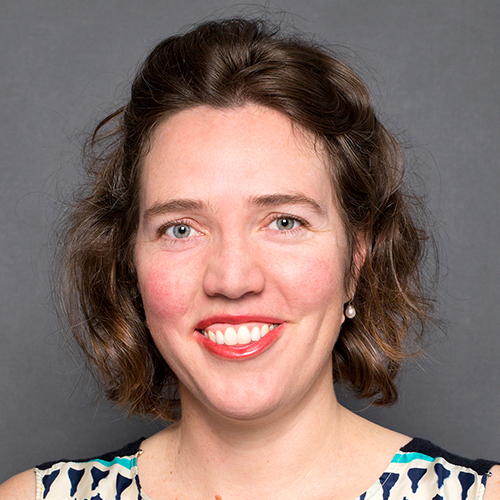
Providing Enhanced Lactation Care for Families Following Late Miscarriage, Stillbirth, Neonatal and Infant Death

Katherine is a Senior Lecturer at School of Sociology, Australian National University. Katherine’s particular areas of interest include the sociology of reproduction and motherhood, perinatal medicine, lactation sciences, human milk banking and donation. Her current projects include an Australian Research Council funded study on maternal experiences of lactation after infant death, and a Mayo Clinic funded research project on the communication with families regarding periviable infant resuscitation.
Every day, around the world, many mothers are faced with the complex task of managing the initial onset, or continuation, of their lactation following a late miscarriage, stillbirth, neonatal or infant loss. This presentation explores findings from a multi-year, multi-site Australian study conducted with bereaved families and health professionals that confirmed the limited nature and scope of lactation care currently available to bereaved families.
This presentation will provide evidence of the need and benefit of approaching lactation after infant death using a biopsychosocial care framework, so that bereaved families are able to make informed decisions from the full array of lactation management options that may be available including: suppression, sustained expression, breastmilk donation or using milk as memento. The challenges involved in providing bereaved lactation care will be acknowledged and discussed. Health professionals will be advised on what information and support bereaved families need and want, how and when this information may be best provided and who may be best placed to offer lactation care to bereaved families.
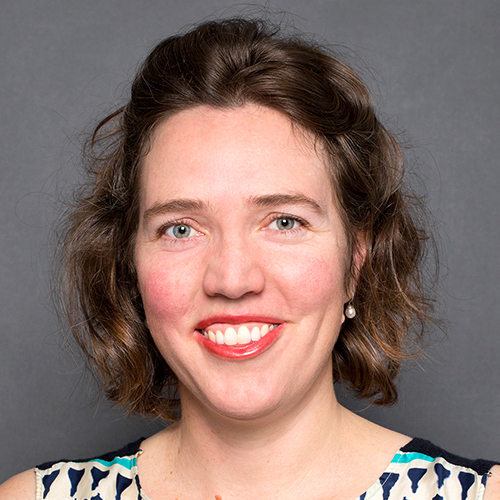
View Details / Enroll


Briana Tillman received her undergraduate degree in International Relations from the United States Military Academy at West Point. She has been a La Leche League Leader for 9 years and is a board certified lactation consultant. After spending 10 years as a stay-at-home mom, she is currently in her third year of medical school at Rocky Vista University College of Osteopathic Medicine in Parker, Colorado. She loves spending time with her husband and three kids—as a family they like to travel, go camping, and play string instruments in “family ensemble.”
Nick is a 3rd year medical student at Rocky Vista University College of Osteopathic Medicine. He has a background in mechanical and systems engineering but found his calling in medicine after volunteering for Health4Haiti in 2011. He lives in Colorado with his wife and they enjoy hiking, camping and fishing in the great outdoors.
Topic: What a Letdown: Exploring the Physiology of the Milk Ejection Reflex - [View Abstract]
Due to the global shortage of mental health professionals, many primary care providers have become the first-line responders to a wide variety of psychiatric concerns. While lactation consultants and breastfeeding support counselors are not called upon to diagnose and treat mental health disorders, they nonetheless often become enmeshed in the topic due to the holistic nature of breastfeeding management. An understanding of the major psychiatric topics that can arise during lactation consultation is therefore a valuable asset.
In this presentation, we will describe mental health benefits and drawbacks of breastfeeding, and explore the controversy surrounding the “breast is best” campaign as it regards maternal mental health. We will also briefly explore the pharmacological and non-pharmacological options in treatment of major psychiatric disorders (e.g. generalized anxiety, major depressive disorder, bipolar mood disorder, schizophrenia) as they relate to lactation. Finally, we will review the scientific literature related to potential long-term mental health effects of breastfeeding on babies.

View Details / Enroll





